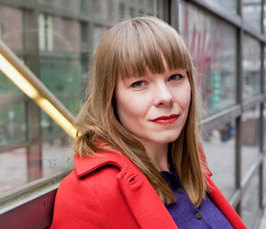The Rich and the Powerful: Rethinking the Power of Ownership
MPIfG Lecture
- Date: May 19, 2021
- Time: 05:00 PM - 06:30 PM (Local Time Germany)
- Speaker: Hanna Kuusela
- University of Tampere
- Sign up: info@mpifg.de

In her talk, Hanna Kuusela discusses the many dimensions of accumulated ownership and argues that the unprecedented magnitude of today’s largest fortunes forces research to revise some of its premises on capital ownership. Drawing on her work among the top earners and super-rich inheritors in Finland, she argues that understanding the dynamics of contemporary inequalities requires further study of the agency of private owners and the cultural frames or social and political locations that account for their advantages. The puzzling question driving the talk is: If managers, financial intermediaries, and institutional investors are the primary agents of today’s capitalism, as today’s major paradigms suggest, why and how does the system benefit the big owners so generously? How has the stabilization of owners’ profit rates and long-run expectations been achieved institutionally, politically, juridically, and culturally? Wealthy owners seem to be highly capable of guarding their interests, modifying institutional environments to their liking and building beneficial alliances with other classes. Whether it is Elon Musk’s tweets boosting the shares of a company, or a billionaire stating that a major merger was his initiative, accumulated capital doubtless gives both coercive power over others and creative power to bring about change. Now we only need to know how and why this is the case.
Hanna Kuusela is an Academy Research Fellow at Tampere University, Finland. She is a Cultural Studies scholar focusing on the socioeconomic power of economic elites and private sector actors, such as top earners and consultants, in shaping public policy and social imaginaries. Her current research projects investigate the cultures of private capital in the twenty-first century and the role of private business interests in higher education.